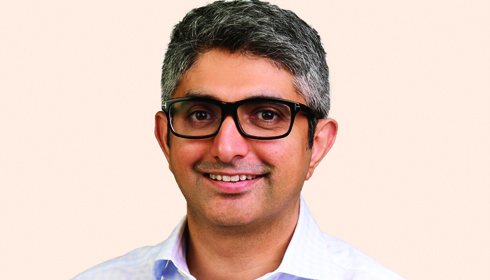
Indians are seeking help for mental health issues early: Dr Amit Malik
De-stigmatising, along with celebrities opening up about their mental health issues, has resulted in people seeking help from professionals earlier, thereby bringing the conversation about it to the forefront in recent years, says renowned psychiatrist and health entrepreneur Dr Amit Malik.
Dr Malik, Founder and Chief Executive Officer of Amaha, told Drug Today Medical Times that people's awareness of mental health is growing, and they are increasingly eager to talk about it.
Amaha, which is fast emerging as one of India's largest and most reputed mental health organisations offering clinical expertise, global best practices and technology-based support for quick and easy access to people in distress, has delivered over 35,000 therapy and psychiatry sessions online in more than 15 languages to individuals across more 300 Indian cities, have started first three in-person centres in Bengaluru, Delhi NCR and Mumbai recently.
Explaining the technology platform that Amaha is developing to provide mental health support reach to its end users, Dr Malik said, “We are building a platform for mental illness in the country, unlike others who are mainly into providing wellness.”
“What we have realised from our experience is that to provide quality services for mental health issues, one needs to have a strong technological background,” he added.
Pointing out that India is going through a mental health crisis Dr Malik said that according to available estimates, there were 195 million in the country suffering from some form of mental health issues before the COVID pandemic struck and after that, the prevalence of some of the mental health conditions have gone up significantly almost to the tune of 30-35%.
Talking about the challenges that the country is facing Dr Malik said that though there is no accurate data available in this country, according to his estimates, there are about 9-10 thousand psychiatrists in India.
Also Read:
| - Rising concentrations of carbon dioxide triggering mental illness |
“Though we cannot give the accurate number of psychologists, India produces a large number of post-graduates in psychology each year. While some of them are well equipped and are ready to practice, others with a little training and support can be equipped to practice clinical psychology,” he added.
Pointing out that the country has enough human resources, at least in the medium term, to meet the challenge, Dr Malik added, “We produce enough clinical professionals in the ecosystem and as long as we can create the right training, supervision and avenues for them to work with clients.”
“However, every organisation has to continue to invest in training, supervision and quality monitoring and building quality to leverage the supply of professionals who are already coming out of the ecosystem,” he added.
Dr Malik stressed that available data indicate that an alarming number of people in the country are suffering from major depressive and anxiety disorders and require treatment and that brushing the issue under the rug will not help, and that people should understand that everyone is susceptible to mental disorders.
“It is not just the people who are suffering, but also those around them are getting affected as we know from the WHO data that one in every four people across the globe has been affected by mental health issue at least once in their lifetime,” he said.
Dr Malik stated that there are a variety of things that can help persons suffering from mental health concerns, ranging from talking therapy and other modalities to medication, and that using several treatments results in speedier healing.
“It is important that people feel better when they connect with services like ours and then we get them to get better and stay better” he added.
The key issue is how people acquire access to these services, and unlike many other health disorders, most people with mental health conditions wait a long time before seeing a professional, which delays their rehabilitation process and often leads to people dropping out.
"This cycle needs to be broken," Dr Malik pointed out.